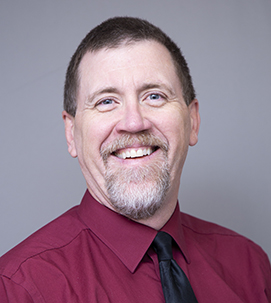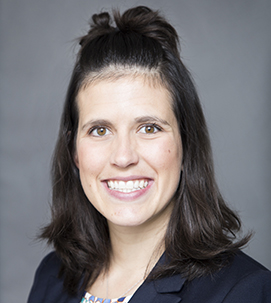Health Information
Central Wyoming College encourages the use of the Community Health Center of Central Wyoming for any students who need health services. Their services are provided on a sliding fee scale. It is the mission of the health center to provide comprehensive healthcare services for all residents of Fremont County, regardless of their ability to pay.
For more information contact:
Community Health Center of Central Wyoming
2002 West Sunset Drive, Suite 2
Riverton, WY 82501
307-463-7160
Or visit their website: http://www.chccw.org/
Counseling and Wellness
Free counseling services
We care about our students past and present and offer counseling and wellness services to support mental health, wellness, and educational goals.
We understand that everyone has problems. Everyone can feel down, overwhelmed, worried or confused. Counseling services are available to help you deal with life's challenges be they stress, navigating your career, homesickness, loneliness, anxiety, depression, family problems, identity, cultural concerns, academic concerns, eating or body image, drugs...whatever is bothering you we are here to help. We offer a variety of counseling services that are completely FREE of charge. Services include:
- Career counseling and assessment
- Academic skills development
- Personal counseling
Setting up an appointment is easy - call 855-2175 or 855-2011.
Personal Counseling
Personal counseling is available to help you seek out professional help, when dealing with your problems on your own is just too much. The counseling office is staffed by licensed professional counselors who are sensitive to the many issues affecting college students today. Our counseling works from a short-term treatment model. If it appears that you need or want long-term therapy, a referral will be made to the appropriate community resource.
Counselors and clients work together to create counseling plans that offer a reasonable promise of success and are consistent with the abilities and circumstances of the client, and are free to CWC students.
If You Are in Crisis
If you are experiencing a crisis and need help immediately
-
Contact the Counseling Office at 855-2175 or 855-2011
-
Or contact Campus Security at 855-2143
-
Or contact the Vice President for Student Affairs at 855-2187.
If it is after normal working hours, the following agencies provide 24 hour hot lines 7 days a week.
Fremont Counseling
Riverton (307) 856-6587, Lander (307) 332-2231 or 1-888-214-3405
Family Violence and Sexual Assault
Riverton (307) 856-4734, Lander (307) 332-7215, Dubois (307) 455-2512 or 1-888-873-5208
Wyoming Behavioral Institute in Casper – 1-800-634-4469, 24-hour helpline
National Sexual Assault Hotline – 1-800-656-4673, 24-hour helpline
Suicide Prevention – 1-800-SUICIDE or 1-800-784-2433, toll-free nationwide 24/7.
Wyoming Behavioral Institute in Casper – 1-800-634-4469, 24-hour helpline
National Sexual Assault Hotline – 1-800-656-4673, 24-hour helpline
Suicide Prevention – 1-800-273-TALK (8255), or Text WYO to 741 741, 24-hour helplines
Student of Concern and Student in Crisis - Making a Referral
Are you concerned about a student and want to do something about it? There is a team of staff members on campus that you can make an official referral to for action that WILL take place to attempt to help the student.
If you think a student may be in crisis and is in an emergency, contact 911 or Campus Security at 855-2143.
For concerns that would not constitute an emergency, contact the Counseling Services Office at 855-2175 or 855-2011, or stop by MH 101T or MH123F.
Either of these will start the process and action WILL be taken! Unsure of what kind of concern you have? Contact the Counseling Services Office at 855-2175 or 855-2011 or Campus Security at 855-2143.
We maintain a large library of pamphlets, books, and videos on a variety of health topics. Here you can find links to helpful online resources.
Mental Health Screening
The following assessments are offered free of charge to all CWC students:
- Alcohol Assessment
- Depression Assessment
- Eating Disorders Assessment
Begin your assessment now...
Once you have completed an assessment and received your results, it is strongly recommended that you make an appointment to meet with a counselor to discuss your results.
University of Chicago Virtual Health Pamphlets
Resources to help you get more information on a range of topics from addiction to eating disorders and many more.
Student Health 101
Take a look at this month's online college health newsletter to which CWC now subscribes.
You can also look at old issues of Student Health 101, by clicking here.
Suicide Prevention & General Mental and Physical Health
The site, HealthLine, is a great resource that can provide information on a variety of mental and physical;health-related disorders and issues.
The JED Foundation has another great website with tons of resources!
Go Ask Alice!
Columbia University's Health Question and Answer Internet Service
e-CHUG Alcohol Awareness Assessment
e-CHUG is an electronic assessment of your personal drinking profile that is totally confidential. In about 30 minutes, e-CHUG can help you to assess your levels of intoxication and personal risk factors and will show you how your drinking habits compare to other college students.
e-CHUG can also help you determine your readiness to change and will identify resources for obtaining assistance. If you need verification of your use of e-CHUG, be sure to print the Certificate of Completion when you have completed the program.
Addictions Treatment
The Counseling and Career Services Center does not provide any treatment of alcohol and/or drug issues, but the counselor is available to provide psycho-educational materials for prevention and intervention services, as needed. If treatment appears to be the student's need, a referral will be made to an outside source. If you would like to explore treatment options, speak with the counselor or take a look at American Addictions Centers or RehabSpot.com, which may be able to help.
Depression
The Counseling and Career Services Center provides assistance for depression and related issues that are affecting academic performance. Contact the counselor by e-mail or call at 855-2175 to set up an appointment, or call 1-800-273-TALK (8255) 24 hours a day for free, professional help.
Disability Assistance
The Counseling and Career Services staff work closely with the Disability Services staff to provide assistance for students with identified disabilities to transition from high school to college. Take a look at Going to College for some ideas or contact the Disability Services Coordinator at (307)855-2011, or 800-735-8418, ext 2011.
Stop Smoking Assistance
Please stop by the Counseling and Career Services Center to pick up useful information, quit assistance packets, or to ask questions.
The Importance of Sleep
- Seek out persons who care for and support you. Share your reactions, thoughts and how the experience impacted you.
- Know that the reactions to trauma described are normal responses to a very abnormal experience. They occur in varying degrees of severity and type for each person.
- Limit the amount of time that you watch details about the tragedy on TV.
- "Baby yourself" - eat well, get your sleep, and do nurturing things.
- Express your feelings with your art! Drawings, poetry etc. are all healthy ways to manage the feelings related to trauma.
- Consider writing a journal of your experience or feelings.
- Seek to gain perspective on the experience. This is often helped by participation in counseling. Other aids may include meditation, reading, spiritual reflection or involvement in support groups.
You may experience some of the symptoms below, this is normal!
- Shock: often the initial reaction to events like this. Shock is the person's emotional protection from being too overwhelmed by the event. You may feel stunned, numb, or in disbelief concerning the event.
- Suffering: this is the long period of grief during which the person gradually comes to terms with the reality of the event/loss. Feelings that life is overwhelming, chaotic and disorganized are common.
- Sadness: The most common feeling found following traumatic events like this. It may become quite intense and be experienced as emptiness or despair.
- Anger: Can be one of the most confusing feelings for the grieving person. Anger is a response to feeling powerless, frustrated, or even abandoned.
- Anxiety: Can range from mild insecurity to strong panic attacks. Often grievers become anxious about their ability to take care of themselves, or fear an event like this will happen to them or a loved one.
It's good to talk about it! We are here for YOU...give us a call!
The Counseling Center and CWC staff members are available to help you or make referrals for additional help.
Lance Goede - Counselor/Success Coach
Extension 2175
Debra Starks - Case Manager/Success Coach
Extension 2221
Some other possible resources:
Cory Daly - VP for Student Affairs
Extension 2186
Steve Barlow - Assistant Dean for Student Services
Extension 2029
Wayne Montgomery - Human Services Instructor
Extension 2269
All counseling sessions are kept strictly confidential. In fact, no one else on campus knows who is seeing a counselor, unless an emergency exists (details can be discussed with the counselor). Counselors are required to have your signed consent in order to share ANY of your personal information with your family, instructors or other professionals. Sometimes it is good to include faculty, staff, or family members in your recovery, but that decision will always be your own.
Personal counseling relationships are professional and contacts between client and counselor are expected to be of a professional nature. Sexual intimacies between client and counselor are never appropriate. You have the right to ask questions about your counselor's credentials and approach. You may also accept or reject any suggested counseling interventions. You may ask to meet with a different counselor. You have the right to report any complaint you may have about counseling services to the vice president of student affairs.
The CWC Counseling Center, to the extent to which its services allow, does not discriminate on the basis of race, color, national origin, ancestry, sex, age, religion, or disability in admission or access to, or treatment or employment in its educational program services or activities. The college makes reasonable accommodations to serve students with special needs and offers services to students who have the ability to benefit. Inquiries concerning Title VI, Title IX. or Section 504 may be referred to the Human Resources Officer at Central Wyoming College, 2660 Peck Ave., Riverton, WY 82501, (307)855-2112 or 1-800-735-8418 (in-state), or the Office of Civil Rights, U.S. Department of Education, Federal Building, 1244 Speer Blvd, Suite 310, Denver, CO 80204-3582, (303)844-5695, Fax (303)844-4303, TDD (303)844-3417, e-mail OCR_Denver@ed.gov.
The spirit of free inquiry, which characterizes the educational environment, must be allowed to flourish within the context of mutual respect and civil discourse. Discriminatory, threatening, or harassing behavior against any group or individual based on, but not limited to, gender, color, disability, sexual orientation, religious preference, national origin, ancestry, or age will not be tolerated.

